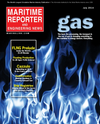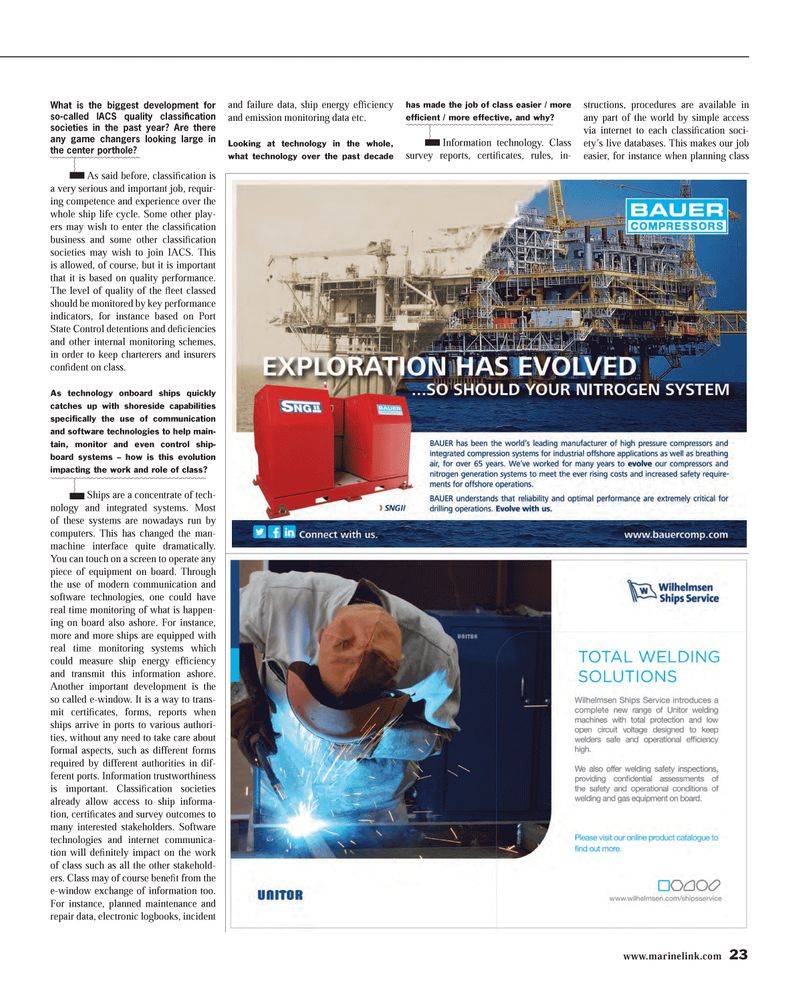
Page 23: of Maritime Reporter Magazine (July 2014)
Offshore Energy Structures & Systems
Read this page in Pdf, Flash or Html5 edition of July 2014 Maritime Reporter Magazine
www.marinelink.com 23
What is the biggest development for so-called IACS quality classifi cation societies in the past year? Are there any game changers looking large in the center porthole? As said before, classifi cation is a very serious and important job, requir- ing competence and experience over the whole ship life cycle. Some other play- ers may wish to enter the classifi cation business and some other classifi cation societies may wish to join IACS. This is allowed, of course, but it is important that it is based on quality performance.
The level of quality of the fl eet classed should be monitored by key performance indicators, for instance based on Port
State Control detentions and defi ciencies and other internal monitoring schemes, in order to keep charterers and insurers confi dent on class.
As technology onboard ships quickly catches up with shoreside capabilities specifi cally the use of communication and software technologies to help main- tain, monitor and even control ship- board systems – how is this evolution impacting the work and role of class? Ships are a concentrate of tech- nology and integrated systems. Most of these systems are nowadays run by computers. This has changed the man- machine interface quite dramatically.
You can touch on a screen to operate any piece of equipment on board. Through the use of modern communication and software technologies, one could have real time monitoring of what is happen- ing on board also ashore. For instance, more and more ships are equipped with real time monitoring systems which could measure ship energy effi ciency and transmit this information ashore.
Another important development is the so called e-window. It is a way to trans- mit certifi cates, forms, reports when ships arrive in ports to various authori- ties, without any need to take care about formal aspects, such as different forms required by different authorities in dif- ferent ports. Information trustworthiness is important. Classifi cation societies already allow access to ship informa- tion, certifi cates and survey outcomes to many interested stakeholders. Software technologies and internet communica- tion will defi nitely impact on the work of class such as all the other stakehold- ers. Class may of course benefi t from the e-window exchange of information too.
For instance, planned maintenance and repair data, electronic logbooks, incident and failure data, ship energy effi ciency and emission monitoring data etc.
Looking at technology in the whole, what technology over the past decade has made the job of class easier / more effi cient / more effective, and why? Information technology. Class survey reports, certifi cates, rules, in- structions, procedures are available in any part of the world by simple access via internet to each classifi cation soci- ety’s live databases. This makes our job easier, for instance when planning class
MR #7 (18-25).indd 23 7/4/2014 7:29:00 PM

 22
22

 24
24
